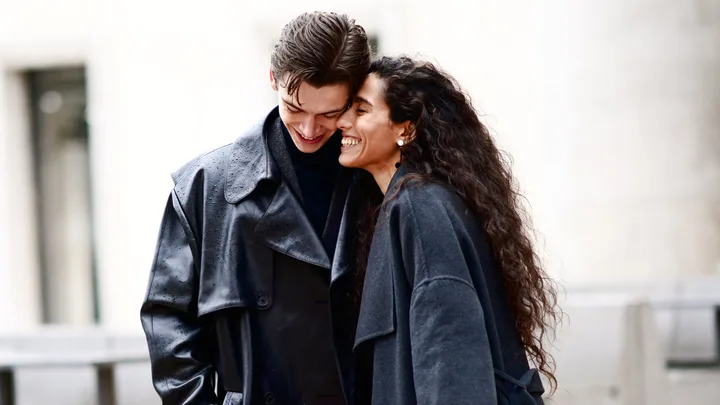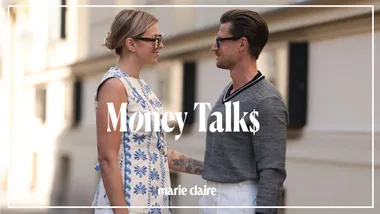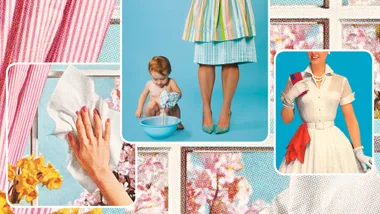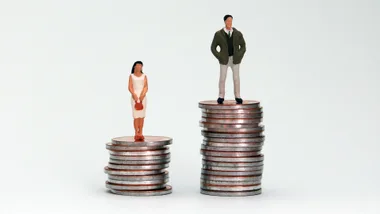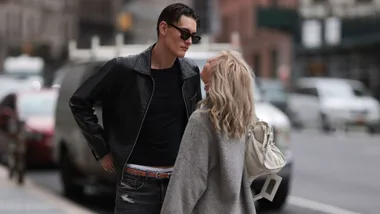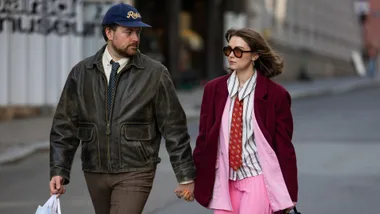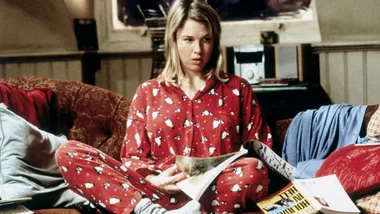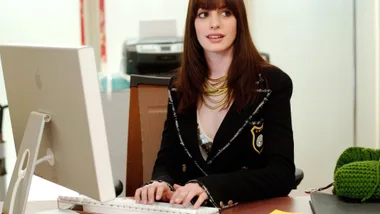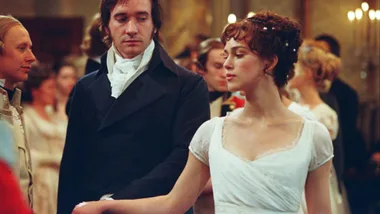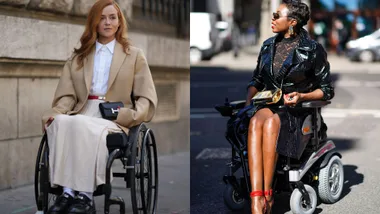Welcome to Money Talks, where everyday couples reveal how they navigate all things finance.
We’ve all dated the guy who pulls out his credit card after an expensive round of cocktails. Your feminist morals insist that you will cover your share. Yet, he waves you off and shuts his AMEX inside the leather bill case. If you’re being honest with yourself, it feels nice to be treated. The gender pay gap is widening every year, so why shouldn’t you accept a little financial favour every now and again?
If you do happen to make it past the first date and into exclusive territory, this ritual of him footing the bill becomes an expectation rather than a pleasant surprise. You stop offering and start leaving your wallet at home. As things get more serious and problems start to arise, money becomes the solution that smooths everything over. But there is resentment between you now. You resent that he won’t communicate with you but instead tries to buy your affection after a fight. And he resents that he’s footing the bill for your lifestyle.
It takes a few years for you to realise that you haven’t just been treated, you’ve been bought. That you’re relationship has become a transaction and your love a commodity. For this week’s Money Talks, Francesca Blake* shares why she stopped dating the card flashing finance bro and started taking savvy men seriously. The result? Her best relationship yet.
The Couple Who… Have Different Saving Habits
Age: 32 and my partner is 33
Salary: My salary is 120k and he’s on 200k
Profession: PR executive and book publisher
marie claire: How long have you been together?
Francesca: We met seven years ago through friends at a party in Melbourne and tied the knot in December last year.
MC: What is your relationship like with money?
F: I grew up fairly comfortably in a middle class family. My earliest memory of money was that it wasn’t something you should talk about. When I was 10, our neighbour had just renovated their house and my brother asked how much it had cost. I recall my mum apologising profusely and scolding us. “It’s rude to ask people how much things cost,” she said.
My parents financial philosophy was very much focused on the present, if you had enough money to cover your bills, rent and your Saturday night plans then you were doing OK. There was never any forward planning or future proofing yourself for a rainy day.
When I started dating, I was attracted to men who had (or seemingly had) money. If a man didn’t foot the bill on a first date, he wouldn’t be hearing from me again. I was attracted to the security and to the feeling of being taken care of.
MC: When did this change?
F: It changed with the last guy I dated before my current partner Rob*. We had went out for two years and at first it was a whirlwind of expensive dinners, weekend getaways and gifts. It was like love bombing expect is was money bombing. Then, he lost his job and he simply couldn’t cope. I found out he was living well above his means, which was fine when he had a job, but he had never planned a fall back. He racked up a lot of debt and blamed a lot of the problem on me. It was a nasty end.
After that experience I decided to change up my approach. I started dating guys who didn’t try to impress me with money. I went on many dates with guys who got awkward when the bill came or we had to have difficult conversations around moving in together and how we would decide the cost. But I learnt to sit with the discomfort because having those conversations are important and you can’t just use money to make them go away.
When I met Rob, the first thing that drew me to him was how comfortable he was with talking about money, without being crass. He was honest about his financial goals and that he was a big believer in making your money go further by shopping sales and investing that money.
MC: How was your partners relationship with money different from your own?
F: Rob also grew up in a middle class family, although, his family was a lot more financially savvy. They would always shop around for the best deal and would never splurge on luxuries like fancy holidays or fine dining. Both his parents instilled in him the need to build up a generous saving net.
MC: How has money impacted your relationship?
F: In the early years money was never something we talked about. We had separate incomes and separate apartments. When we went out for dinner we would usually spilt it 50/50, although, we would also occasionally treat each other and shout the entire bill too.
When we moved in together everything changed. I got a real insight into how other people manage their money and calculate what they buy. For example, I was fairly impulsive with planning meals, whatever I fancied that day I would usually got to the supermarket and buy that night or order Uber eats. Whereas Rob would stretch his money further, by looking ahead at the specials that week and planning his meals.
“While it’s important to be financially secure, money is also just a means to and end”
– Francesca
MC: Do you have both a solo bank account, shared or both?
F: After we got engaged we decided to open a join bank account. We have still kept our own bank accounts for personal savings but now we have a shared bank account for bills, rent ect.
MC: What have you learnt from Rob?
F: I’ve learnt that security doesn’t come from someone else, it comes from living a little more leanly so you can put money aside as a safety net. What I’ve taught him though, is that while it’s important to be financially secure, money is also just a means to and end. You don’t want to waste you best years scrimping and saving so that you can potentially live better in the future, as there are no guarantees in life.
MC: How do you feel about your current financial situation?
F: I feel as though I have less financial anxiety around what I will do if I loose my job or if I have an unexpected health bill. I also feel more empowered with how I approach money which has comes from having a great financial literacy.
MC: What are your future finance goals?
F: To invest 15k into ETF’s (Exchange Traded Funds), so that I can started building my investment portfolio. On a fun note, there’s also a great Bottega Veneta bag on my bucket list.
*Name has been changed.
Disclaimer: The contents of this article are personal recounts and not advice. They have been prepared without taking account of your objectives, financial situation or needs. You should, before you make any decision regarding any information, strategies or products mentioned on this website, consult your own financial advisor to consider whether that is appropriate having regard to your own objectives, financial situation and needs.
